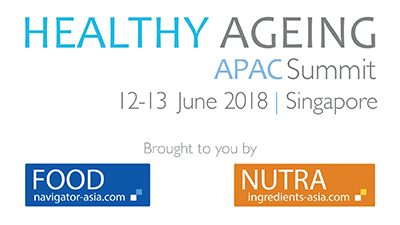Despite the common use of sweeteners as sugar substitutes in many foods and supplements, the adverse effects ascribed to them have led to many being cautious about using them, or even avoiding them altogether.
Speaking at this year's HI Southeast Asia in Jakarta, Sabeera Ali, nutrition officer at Food Industry Asia (FIA), said: "The way information about LNCS is generated is not ideal. There is plenty of inaccurate information readily available online, and it is not always clear to consumers which source is reputable."
LNCS have been said to be unsafe for children and pregnant women, and even to cause cancer, charges Ali said were simply untrue.
Not so sweet
LNCS have attracted many conflicting views, something Ali attributed to "misinformation and misinterpretation of research studies", which has resulted in "the inaccurate association of such sweeteners with adverse health effects such as cancer".
She added that such conclusions were drawn from animal studies, whereas human studies have found that sweeteners — natural (stevia, monk fruit or sugar alcohols) or artificial (aspartame or sucralose) — do not have adverse effects, so long as their intake does not exceed the recommended ADI (Acceptable Daily Intake).
"In fact, recent research has shown that LNCS can also help control sugar and calorie intake without compromising on taste, while also aiding in weight and glucose management and dental health, when not taken in excessive amounts."
This runs contrary to the belief that compromised taste profile in foods, drinks and even supplements (such as whey protein) sweetened with sugar substitutes will cause consumers to crave sugary items and therefore, worsen their health.
Crucial timing, corporate taxes
It is especially important now to educate consumers on LNCS, with governments across Southeast Asia turning up the pressure on food and supplement firms to remove or reduce ingredients contributing to the region's rising obesity and diabetes rates.
In Singapore, seven drink manufacturers, including — Coca-Cola, Nestlé, PepsiCo and Pokka — have agreed to reduce the sugar content in their drinks to 12% by 2020. The idea of a sugar tax is also 'under consideration' in the country.
Elsewhere in Southeast Asia, specifically Brunei, Thailand, the Philippines and Sri Lanka, sugar taxes have already been implemented. In Malaysia, India and Vietnam, authorities are negotiating the introduction of such taxes.
However, Ali said, "Taxation may not be a sustainable solution, and has a limited effect on public health. Many still have a poor image of LNCS, and as such, may still opt for sugar-sweetened food, drinks and supplements.
"Both the public and private sector should work to provide platforms for people to voice their concerns, ask questions, and receive accurate information on LNCS."

Healthy Ageing APAC Summit 2018: Our next event will assess how the food and nutrition industry can meet the needs of APAC’s rapidly-ageing populations of today and tomorrow. The event, in Singapore on June 12 and 13, will bring together policymakers, academics and industry experts from the likes of Nestle, Blackmores, Swisse and Japanese ‘engay’ food pioneers Nutri co. Find out more here.
